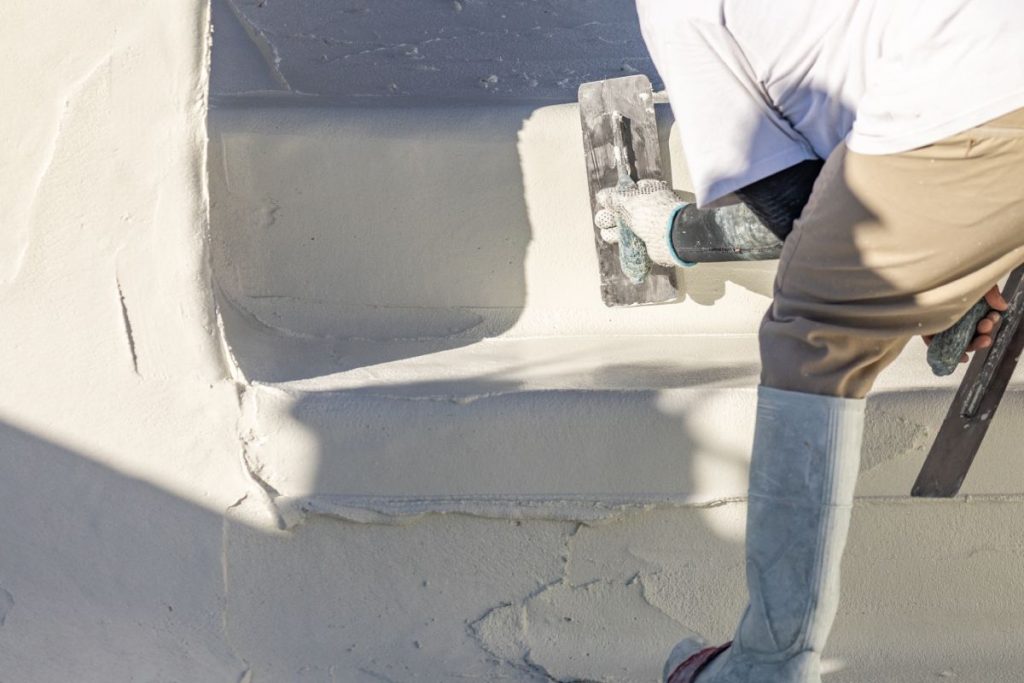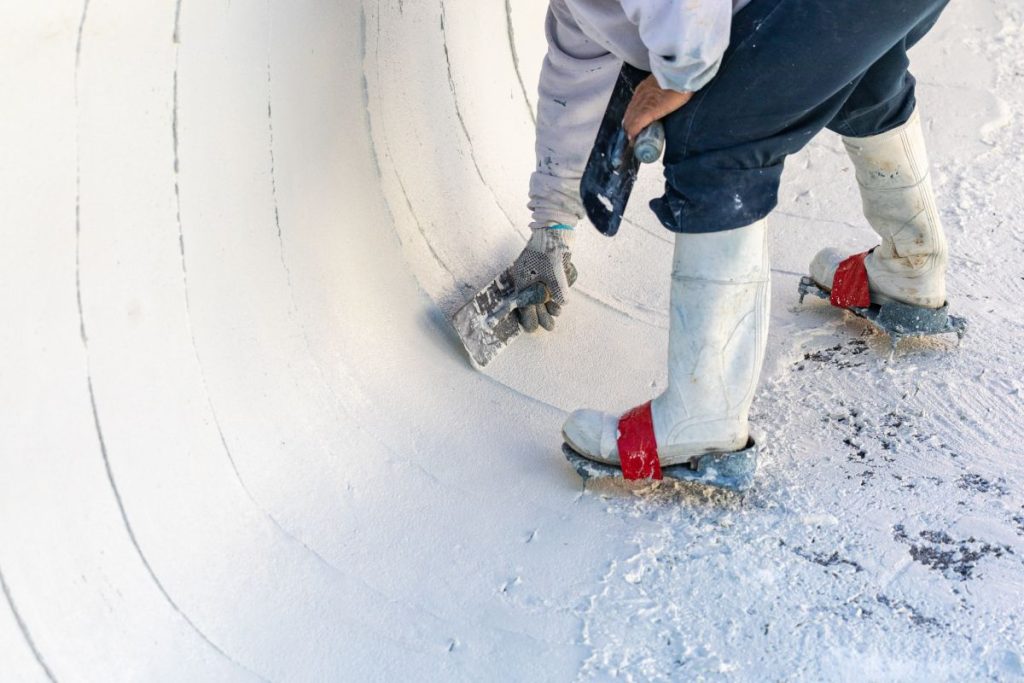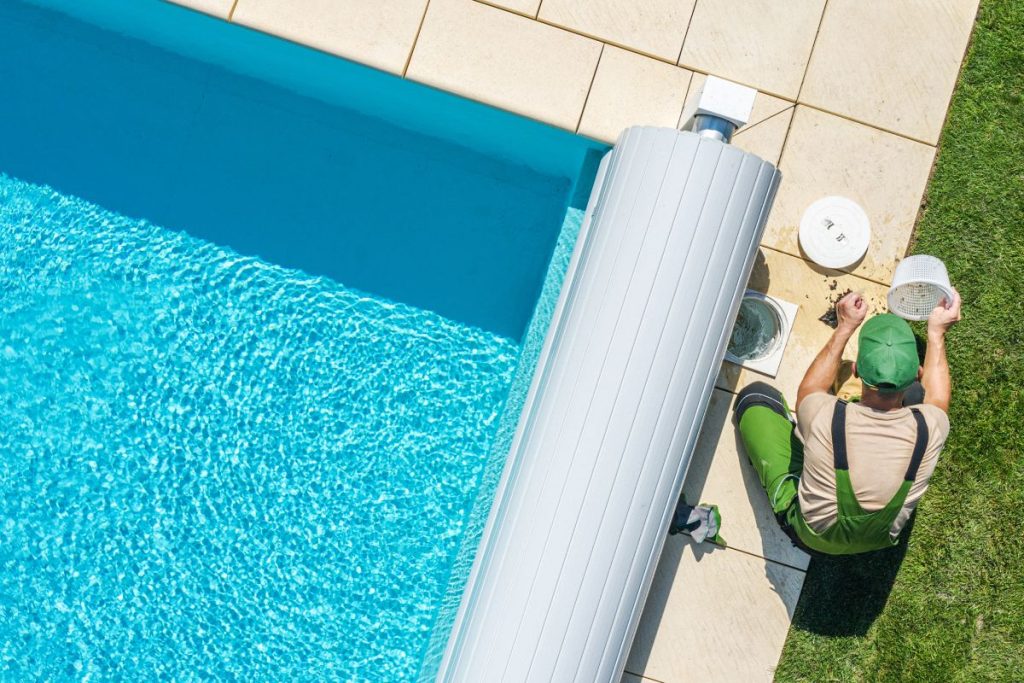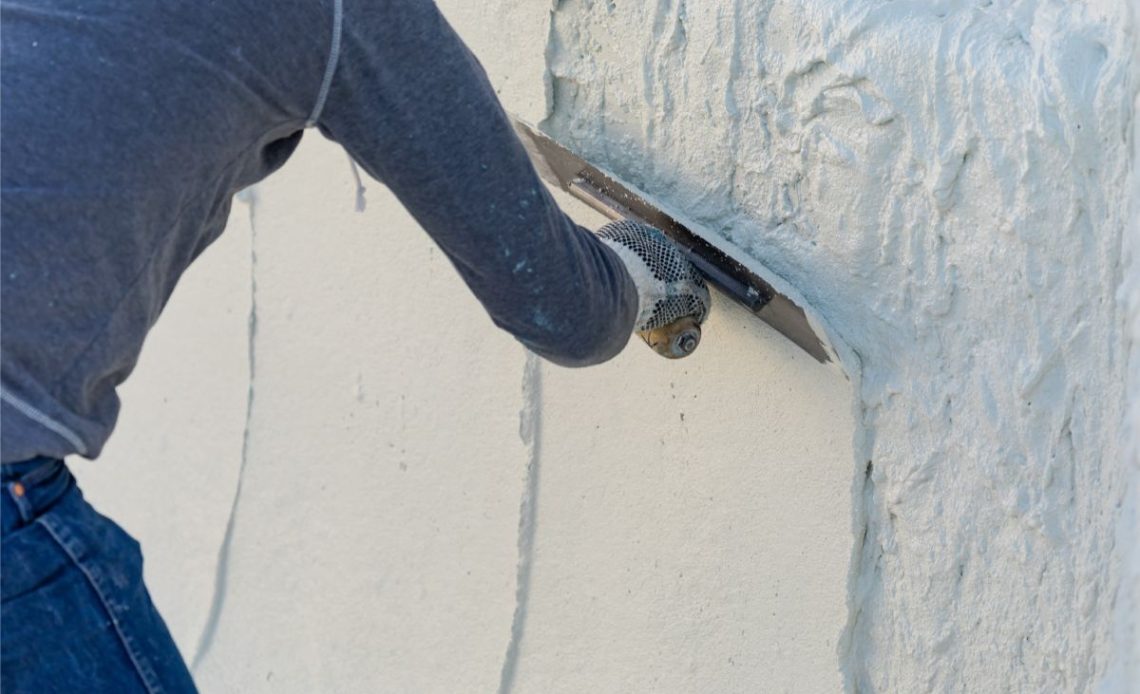Pool plaster is commonly used as a final coating for in-ground pools. It provides a seal of protection between the water and the pool floor. It also gives pools the appearance of being really finished. Some plasters are simple in appearance, while others are more decorative and will make your collection the shining envy of all your neighbours.
What kind of plaster is best, though? And what kinds of characteristics should you be looking for in a good quality plaster? Are the really good ones very expensive? Let’s take a look at some of the distinguishing features that better plasters tend to have, and what the major types on the market are.
What kind of plaster should you use in a pool?
There are two primary purposes to buying plaster for your pool: protecting against leakage and making your pool look good. Protecting against leakage and damage is tricky, and even the best-quality plasters tend to have this problem. Nonetheless, when shopping around, it’s always a good idea to check out third-party reviews and see how your chosen brand stacks up against the rest in terms of its protective qualities.

Some of the major kinds of plasters commonly used in pools are the following:
- White marble plaster – White marble plaster has been used for as long as in-ground pools have been around, and it is a standard bearer among plasters. It includes a combination of white cement, white marble aggregate, and water, and it generally lasts about ten years.
- Diamond Brite – Diamond Brite is known for being particularly resistant to wear and harsh elements. It includes a combination of quartz aggregate and white cement, and it comes in a variety of colours. It also has an expected life span of about a decade.
- QuartzScapes – QuartzScapes are perhaps the most aesthetically dramatic of the major types, including a blend of crushed quartz, white cement, and colour tints. They are considered to be very durable and last for closer to 15 years.
Is pool plaster expensive?
Owning a pool is not cheap. However, if you make an effort to find high-quality plaster and apply it properly, it will keep your pool in shape for a long time. Depending on the size of your pool, you can expect to pay anywhere between $2000-8500. Experienced professionals, like the ones at West Coast Pool Resurfacing, can handle the job for you efficiently and protect your pool for years to come.
What would end up costing you dearly would be neglecting your pool and allowing it to build up serious problems. Then you could end up paying really large amounts of money for damage repair. It’s far better to invest in proper protection early so that you and your family can enjoy your pool and not have to worry about it for the first several years that you own it.

Is pool plaster strong?
As mentioned above, different kinds of plasters have different combinations of aesthetic and protective qualities. What you choose depends on your priorities, but it is certainly possible to find a plaster that will protect your pool against hard water, different kinds of treatment, evaporation, and potential damage caused by heavy usage.
How long does pool plaster last?
How long your plaster lasts depends on several things: What grade of plaster you choose, how much you use your pool, how well you maintain your water, and other factors related to maintenance. Proper maintenance is critical to the correct functioning of your pool plaster, as well as your pool overall.
There are several tips that experts recommend following in order to maintain your plaster:
- Maintain the water. Proper water maintenance is a critical and often neglected aspect of pool ownership. You should test your water pH level on a regular basis to make sure that the alkalinity level doesn’t drop too low. If acidity levels become too high, it could start to etch your plaster.
Conversely, if alkalinity levels get too high, your plaster could start to “scale.” Therefore, maintaining the correct pH balance will help to keep your plaster in good shape and prevent it from eroding prematurely.
- Brush regularly. Another thing that you can do to maintain the quality of your plaster is to brush it regularly. Brushing helps to keep the surface clean, and it helps prevent minerals from sticking to its surface. It is recommended that you brush your pool every other week.
- Use stain protectors. There are certain types of chemicals that you can use, which will help you prevent stains. Depending on the size and type of your pool, different stain protectors might be preferable.
- Invest in a good filtration system. Pools should be filtered on a daily basis in order to prevent the build-up of debris.

Protect and maintain your pool regularly
If you take the time to invest in a good quality plaster (and preferably have professionals apply the initial coat for you) and maintain your pool on a regular basis, your plaster should last you and your family for a long time. Just be sure to cross-check different sites when comparing types so that you know you’re getting what you want, and that you’re not spending more than you should for any particular type.
You should also keep in mind that the maintenance part is critical. Without it, you could develop problems that could have effect on different parts of your pool, from the plaster to your filters and drains, and other parts. Having a swimming pool can be great fun, but just like everything you own, it needs proper care to stay in good shape.




